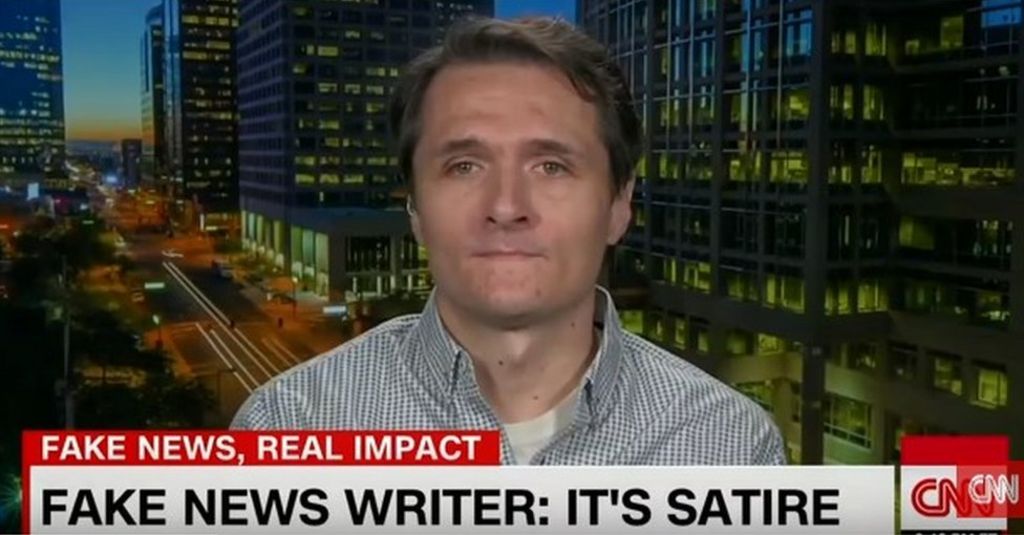US 'fake News' Kingpin Paul Horner Found Dead At 38

 Image copyright
CNN/YouTube
Image copyright
CNN/YouTube
A writer who became notorious for peddling "fake news" during the 2016 US election campaign has died at 38.
Paul Horner was found dead in his bed in Laveen, Arizona, on 18 September, after a suspected drug overdose, officials said.
Horner, who published fraudulent articles on Facebook and websites he set up, claimed he was the reason Donald Trump was elected in November.
Fake news was a major concern during and after the US presidential campaign.
A surge of made-up stories has been accused by some of influencing the outcome of the vote.
Among Horner's creations was a false claim that former President Barack Obama was both gay and a radical Muslim.
Mr Trump's son Eric, and campaign manager Corey Lewandowski, posted one of Horner's fake news items about protesters being paid $3,000 to demonstrate against the Republican candidate.
'Humour and comedy'
Many of Horner's sites, such as newsexaminer.net, had names falsely suggesting legitimacy.
However, Horner defended his work as "political satire".
"There's a lot of humour and comedy in it," he told CNN in December. "I do it to try to educate people. I see certain things wrong in society that I don't like and different targets."
His brother Jj Horner posted on Facebook that he had died in his sleep at his mother's house, describing the writer as "an internet wizard, a humanitarian, an activist, a philosopher, a comedian".
A Maricopa County sheriff's office spokesman, Mark Casey, later confirmed the death and said an autopsy had shown no signs of foul play.
He said Horner had a history of prescription drug abuse and that "evidence at the scene suggested this could be an accidental overdose".
'I hate Trump'
After coming under pressure, sites such as Facebook have been working with US investigators to track down the authors of misinformation on the internet and establish whether they aimed to sway voters.
In an interview with the Washington Post in November, Horner said: "I think Trump is in the White House because of me.
"My sites were picked up by Trump supporters all the time... His followers don't fact-check anything - they'll post everything, believe anything."
But asked whether he targeted fake news at Hillary Clinton's supporters to help her rival, he answered: "No. I hate Trump."
From Chip War To Cloud War: The Next Frontier In Global Tech Competition
The global chip war, characterized by intense competition among nations and corporations for supremacy in semiconductor ... Read more
The High Stakes Of Tech Regulation: Security Risks And Market Dynamics
The influence of tech giants in the global economy continues to grow, raising crucial questions about how to balance sec... Read more
The Tyranny Of Instagram Interiors: Why It's Time To Break Free From Algorithm-Driven Aesthetics
Instagram has become a dominant force in shaping interior design trends, offering a seemingly endless stream of inspirat... Read more
The Data Crunch In AI: Strategies For Sustainability
Exploring solutions to the imminent exhaustion of internet data for AI training.As the artificial intelligence (AI) indu... Read more
Google Abandons Four-Year Effort To Remove Cookies From Chrome Browser
After four years of dedicated effort, Google has decided to abandon its plan to remove third-party cookies from its Chro... Read more
LinkedIn Embraces AI And Gamification To Drive User Engagement And Revenue
In an effort to tackle slowing revenue growth and enhance user engagement, LinkedIn is turning to artificial intelligenc... Read more

